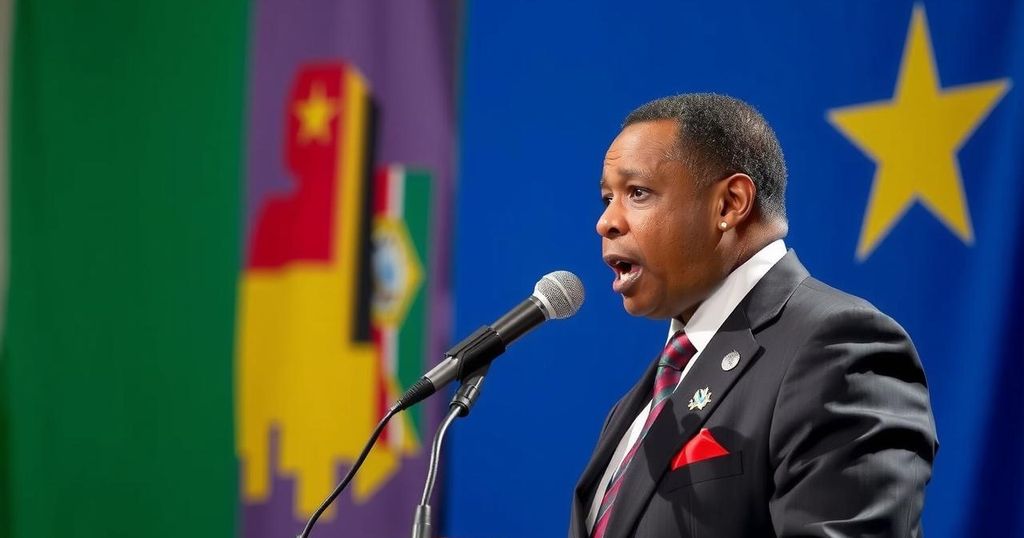Mauritius Prime Minister Acknowledges Election Defeat, Opposition Set to Rise
Prime Minister Pravind Jugnauth conceded a probable defeat in Mauritius’ legislative elections, enabling opposition leader Navin Ramgoolam to reclaim leadership. This electoral contest, shadowed by a wire-tapping scandal and pre-election social media restrictions, highlighted persistent governance concerns in a nation known for its democratic stability. Ramgoolam’s anticipated victory could lead to significant reforms in response to pressing social and economic issues.
Mauritius Prime Minister Pravind Jugnauth publicly acknowledged on Monday the likelihood of a significant defeat for his coalition in the contentious legislative elections, paving the way for the opposition to seize control. While final results from Sunday’s election remain pending, it appears that opposition leader Navin Ramgoolam is poised to become prime minister for a third time, leading his Alliance of Change coalition. Despite planned celebrations for a historic agreement with the United Kingdom regarding sovereignty over the Chagos Islands, Jugnauth’s administration faces scrutiny amid allegations of a wire-tapping scandal that overshadowed the electoral campaign.
Mauritius, known for its stability and prosperity in Africa, has a long history of democratic governance since gaining independence from Britain in 1968. The current political landscape is characterized by the dominance of familial political dynasties, with both Prime Minister Pravind Jugnauth and opposition leader Navin Ramgoolam belonging to prominent political families. The recent election featured 62 seats contested, with the remaining seats filled through a controversial ‘best loser’ system. Allegations of corruption and governance issues have emerged amidst debates around economic growth and the challenges facing ordinary Mauritians, particularly concerning the rising cost of living, all of which have shaped the pre-election environment.
In summary, the political dynamics in Mauritius are set to shift as Prime Minister Pravind Jugnauth concedes the elections, allowing Navin Ramgoolam to potentially reclaim the premiership. This election reflects deeper issues concerning governance, civil liberties, and economic inequalities facing ordinary citizens. The aftermath of the campaign, particularly in light of the wire-tapping scandal and other controversies, raises significant questions about the future direction of Mauritius’s democracy and the governance of its economy.
Original Source: www.bellevueheraldleader.com




Post Comment